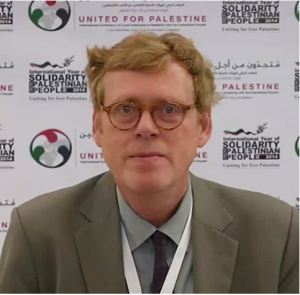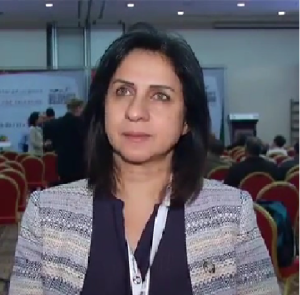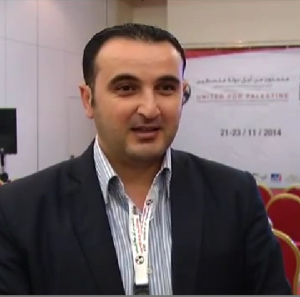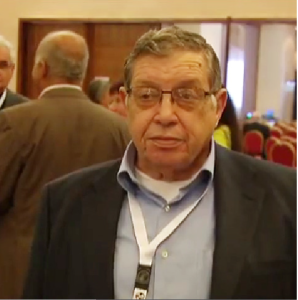Watch: Interviews with mayors and officials at International Conference of Local Authorities
Local authorities at the heart of the state of Palestine
At the International Conference of Local Authorities where hundreds of internationals, Mayors of global cities, Ministers of state, municipal members, local authority representatives, and international political figures came together in one place: Palestine. Middle East Business Magazine had the chance to talk to some of them and listen to what they have to say about the conference.
Olivier Donnet, one of the key organisers and sponsors of the conference, strongly affirmed that: “A strong Palestinian state should be supported by strong local government … this is the key issue … it is like the second leg of the state”.
Jacques Bourgoin, Forrmer Mayor of Gennevilliers, France, has had a long twinning relationship with the City of Al Bireh for over 13 years. He believes that this conference is a political sign of support to the Palestinian people and feels that it is important to come to Palestine to see how things are on the ground, as well as being important in allowing us to cooperate with other cities. Most importantly, one sees the importance of the human relationships that can be created between the citizens of both cities.
 Lana Abu Hijleh, Director General of CHF Global Communities and moderator of two main sessions at the conference, said; “The main message coming from this conference is that local authorities are important in the building of the future State of Palestine, as they have historically been engaged in directly serving their communities, and acting as catalyst for local development, with a participatory leadership-style engaging both civil society and private sector”.
Lana Abu Hijleh, Director General of CHF Global Communities and moderator of two main sessions at the conference, said; “The main message coming from this conference is that local authorities are important in the building of the future State of Palestine, as they have historically been engaged in directly serving their communities, and acting as catalyst for local development, with a participatory leadership-style engaging both civil society and private sector”.
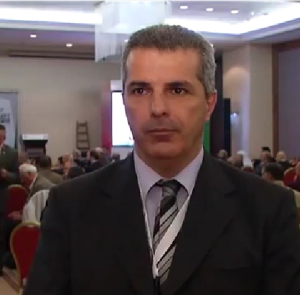 Hazem Kawassmi, Director of Municipal Development Fund:
Hazem Kawassmi, Director of Municipal Development Fund:
“This is an important conference that includes a large number of delegations from South Africa, Germany, France, Turkey, Jordan and many others, as it focuses on advancing local development in Palestine, as municipalities play a critical role in its democratic transformation”.
Mrs Vera Baboun, Mayor of Bethlehem: “The importance of this conference is that it highlights the necessity of having twinning agreements between cities, both at the developmental and political level, and it’s up to each municipality to benefit from the resultant cooperation”.
Anne-Marie Ginger, Deputy Mayor of Arceil, France: “Our city has been working with the City of Hebron for more than 30 years. I spoke during the conference about the importance of democracy: where elected members take the opinion of their population into account, work in total transparency, and without corruption”.
Ihsan Nassr, Head of Koufor Nimeh Village Council (the youngest head of a local authority in Palestine). He said that it was; “A very important conference! It gives us the chance as municipal councils of cities and villages to meet with our peers from other countries. I met few Mayors from Turkey, Germany, Denmark and France”.
Eng. Ghassan Shakaa, Mayor of Nablus, is a strong believer in the political impact of the twinning between cities. Nablus city is twinned with at least ten cities around the world.
 Ulrich Nitschke, head of the governance programme at GIZ, stated; “We are convinced that the role of the municipalities in the state building process is crucial for sustainable development; even in such difficult conditions under illegal occupation, Palestine’s political leadership should be held accountable for all that they promise to their people. Where the people of Palestine expect them to deliver a good level of service, we also expect people to pay for these services through their taxes”. He continued by saying that sustainable development should definitely be part of local economic development.
Ulrich Nitschke, head of the governance programme at GIZ, stated; “We are convinced that the role of the municipalities in the state building process is crucial for sustainable development; even in such difficult conditions under illegal occupation, Palestine’s political leadership should be held accountable for all that they promise to their people. Where the people of Palestine expect them to deliver a good level of service, we also expect people to pay for these services through their taxes”. He continued by saying that sustainable development should definitely be part of local economic development.
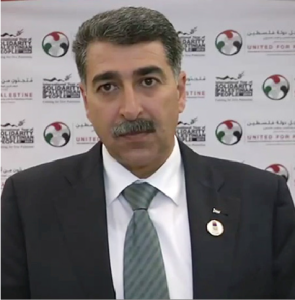 Eng. Moussa Abu Hadid, Mayor of Ramallah City, said;
Eng. Moussa Abu Hadid, Mayor of Ramallah City, said;
“This important conference sends an important message to Palestinians: We are with you”. He continued by saying that municipalities have developed and signed new twinning agreements which will enhance bilateral relations, affecting the local economy and overall level of their services.










